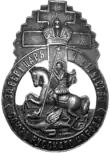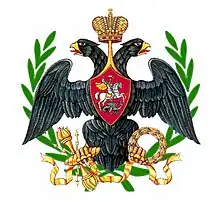List of political parties in Russia
This article discusses political parties in Russia.
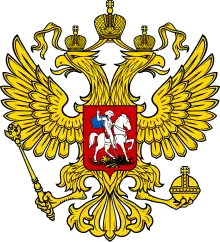 |
|---|
|
|
The Russian Federation has a de jure multi-party system, however it operates as a de facto one-party system. As of 2020 six parties have members in the federal parliament, the State Duma, with one dominant party (United Russia). As of July 29, 2023, 27 political parties[1] are officially registered in the Russian Federation, 25 of which have the right to participate in elections.[2]
History
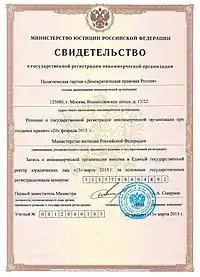
After the Perestroika reforms in the 1980s Russia had over 100 registered parties, but the people elected to the State Duma represented only a small number of parties. After 2000, during Vladimir Putin's first presidency (2000–2008), the number of parties quickly decreased. From 2008 to 2012 there were only seven parties in Russia, and every new attempt to register new, independent parties was blocked. The last-registered party of this period was the government-organized Right Cause (now the Party of Growth) which was registered on 18 February 2009. Before the 2011 parliamentary election, about 10 opposition parties were denied registration.
In December 2004, amendments were introduced providing for a minimum number of party members of 50 thousand and the presence of more than 45 regional branches (500 people each). By January 1, 2006, all parties had to submit documents proving that their party structures comply with the requirements of the law on the minimum number of members and the number of regional branches.[3][4]
In 2009, a bill was introduced to reduce, from January 1, 2010, the number of parties required for state registration from 50,000 to 45,000 (in the regional branches of parties - from 500 to 450 members). By January 1, 2012, the mandatory minimum number of party members will be set at 40 thousand, and in the regional branches of the party - up to 400.[5]
On February 28, 2012, an election law was adopted, parties were exempted from collecting signatures and making a cash deposit for nominating a party and its candidate, and gubernatorial elections were restored. The number of required signatures for candidates for the presidential elections in Russia has been reduced, instead of 2 million now it is enough: 100,000 from parties, and 300,000 for self-nominated candidates. The electoral threshold for parties has been reduced from 7% to 5%.[6]
On March 20, 2012, the State Duma approved a presidential bill to reduce the minimum number of political parties, which allows for their creation in Russia instead of 40,000 only 500 people, and for registering a regional branch - instead of 500 - only 5 people.
However, after a series of mass protests and a 2011 European Court decision on the case of the Republican Party of Russia (now the People's Freedom Party), the law changed and the number of registered parties quickly increased to more than 48 as of December 2012.
Party of power
A "party of power" refers to a political party that has a close relationship with the executive branch of government such that the party appears to function as an extension of the executive rather than as an autonomous political organization.[7][8] The concept resembles that of a cartel party.[8] These parties were specially established for support of the incumbent president or prime minister in the Russian parliament:
- Inter-regional Deputies Group/Democratic Russia (1990–1993, Congress of People's Deputies of the Soviet Union/Congress of People's Deputies of Russia/Supreme Soviet of Russia)
- Democratic Choice of Russia (1993–1994)
- Our Home – Russia (1995–1999)
- Unity (1999–2001/2003)
- A Just Russia - For Truth (the second "party of power", supporting Vladimir Putin and opposing United Russia)
- United Russia (2001–present)
Legal framework
In 2001, the federal law "On political parties" was adopted. All parties had to be re-registered. Parties have been assigned the status of the only type of public association that has the right to independently nominate candidates for deputies and other elective positions in government bodies. One of the important provisions of the law is the establishment of a single national status of a political party, and, as a result, the liquidation of regional and interregional political public associations.[3] According to paragraph 1 of Article 3 of the Federal Law of the Russian Federation No. 95-FZ “On Political Parties”, a political party in Russia is recognized as "a public association created for the purpose of participation of citizens of the Russian Federation in the political life of society through the formation and expression of their political will, participation in public and political actions, in elections and referendums, as well as in order to represent the interests of citizens in state authorities and local governments".[9]
Social composition of voters
According to studies, United Russia voters in 2007 were younger and more market-oriented than the average voter. The party's electorate includes a substantial share of government employees, pensioners and military personnel, who are dependent on the state for their livelihood.[10] Sixty-four percent of United Russia supporters are female. According to researchers, this could be because women place a great value on stability. In the run-up to the 2011 Duma elections, it was reported that support for United Russia was growing among young people.[11]
In April 2023, a survey on the issue of the dissolution of the United Russia Party was conducted among Russians. According to the constitution, the multinational people of Russia are the source of power, so why not see how the people would react to such a proposal? About 2,500 people participated in the survey, mostly aged 45+. To the question "Is it necessary to dissolve the United Russia party with the inability of its members to participate in political life in the future?" the answers were distributed as follows: I am for dissolution without permission to participate in political life in the future - 65%; I am against dissolution - 3%; I am for dissolution, but with permission to participate in political life in the future - 6%; I am for the dissolution of all bourgeois parties - 26%[12]However, this poll also shows a lot – people are dissatisfied with the actions of the ruling party. Anti-people laws and initiatives, complete isolation from reality and everyday life of the average citizen are bearing fruit. Bourgeois deputies do not understand the interests and aspirations of the common people. Although they don't need it.[13]
Current parties
All parties registered by the Ministry of Justice have the right to participate in any elections all over the country. The list is placed on the Justice Ministry website. In December 2012, there were 48 registered parties in Russia; 6 of them are currently represented in the State Duma as of 2021.
Parties represented in the State Duma and the Federation Council
Parties represented in the regional parliaments
| Name | Founded | Leader | Ideology | Stance towards Vladimir Putin | Stance towards war in Ukraine | Regional parliaments | Position | Alliances | |||
|---|---|---|---|---|---|---|---|---|---|---|---|
| RPPSJ РППСС |
Russian Party of Pensioners for Social Justice Российская партия пенсионеров за социальную справедливость |
1997, 2012 | Vladimir Burakov | Pensioners' interests Elderly interests Social justice Single-issue politics |
Supportive[24] | No position | 16 / 3,994 |
Centre | |||
| Yabloko Яблоко |
Russian United Democratic Party "Yabloko" Российская объединённая демократическая партия «Яблоко» |
1993 | Nikolay Rybakov | Social liberalism Progressivism Feminism Anti-war Pro-Europeanism |
Hard Opposition[24] | Anti-war: Opposing the invasion and demanding an immediate ceasefire.[25][26]
Yabloko openly condemned the illegal annexations of Ukrainian territories[27] and demanded the withdrawal of troops from Ukraine.[28] |
13 / 3,994 |
Centre-left | International: LI European: ALDE Party EGP (associated faction) | ||
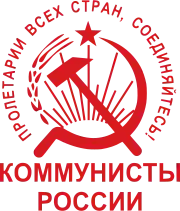 |
CPCR КПКР |
Communist Party "Communists of Russia" Коммунистическая партия «Коммунисты России» |
2012 | Maxim Suraykin | Communism Marxism–Leninism Stalinism Anti-revisionism |
Pro-war[29] | 7 / 3,994 |
Far-left | International: IMCWP (observer) | ||
| REP «The Greens» РЭП «Зелёные» |
Russian Ecological Party "The Greens" Российская экологическая партия «Зелёные» |
1992, 2012 | Andrey Nagibin | Green politics Agrarianism |
Supportive[24] | Pro-war | 4 / 3,994 |
Centre to centre-left | ONF EAGP | ||
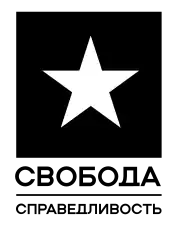 |
RPFJ РПСС |
Russian Party of Freedom and Justice Российская партия свободы и справедливости |
2012 | Maksim Shevchenko | Patriotism | Supportive[24] | No known position | 3 / 3,994 |
Centre-left | ||
 |
PB ПД |
Party of Business Партия дела |
2010 | Konstantin Babkin | Green politics Protectionism Economic nationalism |
No known position | 2 / 3,994 |
Centre to centre-left | |||
| GA! ЗА! |
Green Alternative Зелёная альтернатива |
2020 | Ruslan Khvostov | Green politics Environmentalism Pro-Europeanism |
No known position | 2 / 3,994 |
Centre-left | ||||
| PDD ППД |
Party of the Direct Democracy[30] Партия прямой демократии |
2020 | Oleg Artamonov | Direct democracy E-Democracy |
No known position | 1 / 3,994 |
Centre-right | ||||
Parties in Russian-occupied regions in Ukraine
| Name | Founded | Leader | Ideology | Location | Representation in regional legislature | ||
|---|---|---|---|---|---|---|---|
| Donetsk Republic | 2005 | Denis Pushilin | Russian nationalism Donbas separatism |
Donetsk People's Republic | 74 / 100 | ||
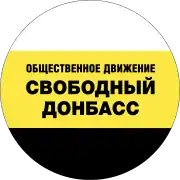 |
Free Donbas | 2014 | Vladimir Medvedev | Russian nationalism Donbas separatism |
Donetsk People's Republic | 26 / 100 | |
| Peace to Luhanshchyna | 2014 | Leonid Pasechnik | Donbas separatism Centrism (self-declared) |
Luhansk People's Republic | 37 / 50 | ||
| Luhansk Economic Union | 2014 | Zinaida Nadion | Donbas separatism Liberal conservatism |
Luhansk People's Republic | 13 / 50 | ||
| New Russia Party | 2014 | Pavel Gubarev Ekaterina Gubareva |
Russian nationalism Eurasianism |
Donetsk People's Republic | 0 / 100 | ||
| Volodymyr Saldo Bloc | 2019 | Volodymyr Saldo | Regionalism | Kherson Oblast | 0 / 64 | ||
List of registered parties
Historical parties (1992–present)
Far-left
| Name | Abbr. | Leader (s) | Ideology | Years active | ||
|---|---|---|---|---|---|---|
 |
Confederation of Anarcho-Syndicalists Конфедерация анархо-синдикалистов |
CAS КАС |
Andrey Isaev Igor Podshivalov Alexander Shubin Vladlen Tupikin |
Anarcho-syndicalism Syndicalism |
1988–1995 | |
| Committee for Workers' Democracy and International Socialism Комитет за рабочую демократию и международный социализм |
CWDIS КРДМС |
Sergei Biets | Marxism Trotskyism |
1990–1999 Succeeded by RWP | ||
| Party of the Dictatorship of the Proletariat Партия диктатуры пролетариата |
PDP ПДП |
Grigory Isayev | Communism Proletarian internationalism |
1990–2020 | ||
 |
Communist Party of the Russian Soviet Federative Socialist Republic Коммунистическая партия Российской Советской Федеративной Социалистической Республики |
CP RSFSR КП РСФСР |
Ivan Polozkov Valentin Kuptsov |
Communism Marxism–Leninism Left-wing nationalism |
1990–1993 (banned in 1991) Succeeded by CPRF | |
| Russian Communist Workers Party Российская коммунистическая рабочая партия |
RCWP РКРП |
Viktor Anpilov Viktor Tyulkin |
Communism Marxism–Leninism Anti-revisionism Stalinism |
1991–2001 Merged into RCWP-RPC | ||
| Russian Party of Communists Российская партия коммунистов Revolutionary Party of Сommunists Революционная партия коммунистов |
RPC РПК |
Anatoly Kryuchkov | Communism Marxism |
1991–2001 Merged into RCWP-RPC | ||
| Communists — Labour Russia — For the Soviet Union Коммунисты — Трудовая Россия — За Советский Союз |
KTR КТР |
Viktor Tyulkin Anatoly Kryuchkov Viktor Anpilov |
Communism Marxism–Leninism Anti-revisionism Soviet patriotism |
1995–1999 | ||
| Stalin Bloc – For the USSR Сталинский блок — За СССР |
SB СБ |
Yevgeny Dzhugashvili Viktor Anpilov Stanislav Terekhov |
Communism Stalinism Marxism-Leninism Anti-revisionism Soviet patriotism National Communism |
1997–1999 | ||
| Socialist Resistance Социалистическое сопротивление |
SocSopr СоцСопр |
Collective leadership | Socialism Trotskyism |
1998–2011 Successed by SA | ||
 |
Russian Communist Workers' Party – Revolutionary Party of Communists Российская коммунистическая рабочая партия – Революционная партия коммунистов |
RCWP-RPC РКРП-РПК |
Viktor Tyulkin | Communism Marxism–Leninism Anti-revisionism |
2001–2007 (officially deregistered) | |
| Resistance Movement named after Petr Alexeev Движение сопротивления имени Петра Алексеева |
DSPA ДСПА |
Dmitry Zhvania | Socialism Self-management socialism |
2004–2012 | ||
 |
All-Russian Communist Party of the Future Всероссийская коммунистическая партия будущего |
VKPB ВКПБ |
Vladimir Tikhonov Aleksandr Kuvayev |
Communism Marxism–Leninism Soviet patriotism |
2004–2009 | |
| Socialist League "Forward" Социалистическое движение «Вперёд» |
SLV СДВ |
Collective leadership | Trotskyism Eco-socialism Socialist feminism |
2005–2011 Merged into RSM | ||
| Interprofessional Workers' Union Межпрофессиональный союз трудящихся |
MPST МПСТ |
Collective leadership | Anarcho-communism Anarcho-syndicalism |
2008–2019 | ||
| Russian United Labour Front Российский объединённый трудовой фронт |
ROT FRONT РОТ ФРОНТ |
Viktor Tyulkin Sergei Udaltsov |
Communism Marxism–Leninism Socialism |
2010–2020 (officially deregistered) | ||
Left-wing
| Name | Abbr. | Leader (s) | Ideology | Years active | ||
|---|---|---|---|---|---|---|
| Civil United Green Alternative Гражданская объединённая зелёная альтернатива |
GROZA ГРОЗА |
Oleg Mitvol (2009–2012) | Green politics Alter-globalism Anti-fascism Social justice |
1991–2012 | ||
| Labour Party Партия труда |
PT ПТ |
Oleg Smolin | Democratic socialism Syndicalism |
1992–1994 | ||
.svg.png.webp) |
Agrarian Party of Russia Аграрная партия России |
APR АПР |
Mikhail Lapshin Vladimir Plotnikov |
Agrarian socialism Collectivist anarchism |
1993–2008 Merged into United Russia Re-founded in 2012 | |
| Socialist United Party of Russia Социалистическая единая партия России |
SEPR СЕПР |
Alexey Podberezkin Ivan Rybkin Vasily Shestakov |
Socialism Socialist patriotism Christian left |
2002–2007 Merged into A Just Russia | ||
.png.webp) |
Patriots of Russia Патриоты России |
PR ПР |
Gennady Semigin | Democratic socialism Social democracy Left-wing nationalism Soviet patriotism |
2005–2021 Merged into SRZP | |
Centre-left
Centrist
Centre-right
Right-wing
Far-right
Ukrainian political parties
Regionalist parties
| Name | Abbr. | Leader (s) | Ideology | Political position | Years active | ||
|---|---|---|---|---|---|---|---|
| Vainakh Democratic Party Вайнахская демократическая партия Вайнехан Демократан Цхьанкхетаралла |
VDP ВДП ВДЦ |
Zelimkhan Yandarbiev | Chechen separatism Chechen nationalism Anti-communism |
Big tent | 1990–1993 | ||
| Buryat-Mongol People's Party Бурят-Монгольская народная партия Буряад-Монгол Арадай Нам |
BMPP БМНП БМАН |
Mikhail Ochirov | Conservative liberalism Buryat-Mongol nationalism Pan-Mongolism |
Centre-right | 1990–2001 | ||
 |
Communist Party of the Republic of Tatarstan Коммунистическая партия Республики Татарстан Татарстан Республикасы коммунистлар партиясе |
CPRT КПРТ ТРКП |
Robert Sadykov Alexander Saliy |
Communism Marxism–Leninism |
Far-left | 1991–2002 Merged into CPRF | |
| Baltic Republican Party Балтийская республиканская партия |
BRP БРП |
Sergei Pasko Rustam Vasiliev |
Kaliningrad independence Kaliningrad autonomism Social liberalism Pro-Europeanism Anti-communism |
Centre-right | 1993–2005 | ||
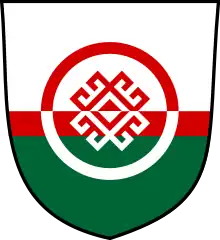 |
Mari National Rebirth Party "Ushem" Марийская партия национального возрождения "Ушем" |
Ushem Ушем |
Vladimir Kozlov | Mari nationalism | Big tent | 1917-1918 (banned) 1989-? | |
| Russian Unity Русское единство Руська єдність |
RE РЕ РЄ |
Maksym Kovalenko Sergey Aksyonov |
Russian nationalism Russian irredentism Russophilia Crimean regionalism |
Right-wing | 2008–2014 Merged into United Russia | ||
Soviet parties, 1917–1992
CPSU and factions
Clandestine and illegal parties
Parties of the multi-party period
Parties of the Russian Empire, 1721–1917
Pre-revolutionary organizations
Left-wing
Centrist and moderate right
| Name | Abbr. | Leader (s) | Ideology | Years active | ||
|---|---|---|---|---|---|---|
| Progressive Economic Party of the Russian Empire Прогрессивно-экономическая партия Российской империи Commercial and Industrial Union of the Russian Empire Торгово-промышленный союз Российской империи Commercial and Industrial Party of the Russian Empire Торгово-промышленная партия Российской империи |
PEP ПЭП TPS ТПС TPP ТПП |
Grigory Krestovnikov | Anti-socialism Bourgeoisie interests |
1905-1905 | ||
| Party of the Legal Order Партия правового порядка |
PPP ППП |
Anatoly Savenko | Constitutional monarchism Russian nationalism |
1905-1917 | ||
| Ittifaq al-Muslimin Иттифак аль-Муслимин İttifaqi-Müslimin اتفاق المسلمين |
Ittifaq Иттифак اتفاق |
Alimardan bey Topchubashov Khalil bey Khasmammadov Abdurrahim bey Hagverdiyev |
Islamic liberalism Jadidism Constitutional monarchism |
1905-1917 | ||
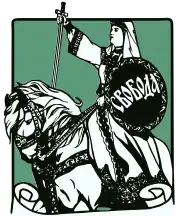 |
Constitutional Democratic Party Конституционно-демократическая партия |
Kadets Кадеты |
Pavel Miliukov | Constitutionalism Constitutional monarchism Liberal democracy Parliamentarism Political pluralism Social liberalism |
1905-1917 | |
| Union of October 17 Союз 17 октября |
Octoberists Октябристы |
Alexander Guchkov | Reformism Liberal conservatism Constitutional monarchism |
1905-1917 | ||
| Union of freedom, Truth and Peace Союз свободы, истины и мира |
UFTP ССИМ |
Ivan Prokhanov Nikolay Odintsov Pyotr Frizen |
Christian democracy Mennonism Evangelical Christianity Left Baptism Constitutional monarchism |
1905-1906 | ||
| Party of Democratic Reform Партия демократических реформ |
PDR ПДР |
Maksim Kovalevsky | Classical liberalism | 1906-1907 Merged into Progressive Party | ||
| Party of Peaceful Renovation Партия мирного обновления |
PMO ПМО |
Pyotr Heiden Nikolay Lvov |
Liberal conservatism Classical liberalism |
1906-1907 Merged into Progressive Party | ||
| Progressive Party Прогрессивная партия |
Progressists Прогрессисты |
Aleksandr Konovalov Ivan Yefryemov |
Classical liberalism Conservative liberalism Constitutional monarchism |
1907-1917 | ||
Right-wing
References
- "Список зарегистрированных политических партий". Официальный сайт Министерства юстиции России. Archived from the original on 2020-09-13. Retrieved 2021-07-26.
- "Список политических партий, имеющих право в соответствии с Федеральным законом от 11.07.2001 № 95-ФЗ «О политических партиях» принимать участие в выборах, по состоянию на текущую дату (07.07.2021)". Официальный сайт Министерства юстиции России. Archived from the original (doc) on 2021-07-26. Retrieved 2021-07-26.
- "Каспаров. Ru | 15 политических партий не соответствуют положениям нового закона и будут ликвидированы". Archived from the original on 2013-03-14. Retrieved 2012-10-09.
- "Госдума приняла закон об увеличении минимальной численности партии до 50 тыс. человек". NEWSru. 2004-12-03. Archived from the original on 2014-09-15. Retrieved 2012-10-19.
- "Госдума одобрила снижение обязательной минимальной численности партий. Оппозиция все равно недовольна". NEWSru. 2009-03-13. Archived from the original on 2014-09-15. Retrieved 2012-10-19.
- "Госдума одобрила законопроект о Выборах и партиях". Archived from the original on 2019-02-20. Retrieved 2020-04-27.
- Compare: Isaacs, Rico (21 March 2011). Party System Formation in Kazakhstan: Between Formal and Informal Politics. Central Asian Studies. Abingdon: Routledge (published 2011). ISBN 9781136791079. Retrieved 2018-03-07.
A central principle behind the party of power is a party's relationship with the state (Knox et al., 2006). Parties of power have a close relationship with the executive branch which is seen to co-opt parties of power for their own political purposes (Hale, 2004). Thus, parties of power are an extension of the executive where the party 'is the actual group whose members wield power in and through the executive branch of government' (Oversloot and Verheul, 2006: 394).
- Isaacs, Rico (2011). Party System Formation in Kazakhstan: Between Formal and Informal Politics. Routledge. p. 38.
- "Федеральный закон от 11.07.2001 № 95-ФЗ «О политических партиях» (в ред. от 03.07.2018)". Archived from the original on 2016-10-25. Retrieved 2016-10-19.
- "Russia Analytical Digest" (PDF) (102). University of Basel, Center for Security Studies Zürich, Forschungsstelle Osteuropa Bremen. 26 November 2011: 2–6. Archived from the original (PDF) on 2 May 2012.
{{cite journal}}: Cite journal requires|journal=(help) - Yevgeny Utkin. Seven parties, one virtually certain outcome Russia Beyond the Headlines. (2011-11-23)
- "VK.com | VK". m.vk.com. Retrieved 2023-08-27.
- "VK.com | VK". m.vk.com. Retrieved 2023-08-27.
- "В Грозном активисты "Единой России" присоединились к митингу в поддержку российских военнослужащих. English: In Grozny, United Russia activists joined a rally in support of Russian military personnel". er.ru (in Russian). Retrieved 2022-07-07.
- ""Медуза" выяснила, что "Единая Россия" "рекомендует" говорить о войне своим кандидатам во время выборов Войну развязал Запад. Украина — в заложниках у США. Россия — заботится обо всех мирных украинцах. English: Meduza found out that United Russia "recommends" that its candidates talk about the war during elections. The war was started by the West. Ukraine is being held hostage by the United States. Russia cares about all peaceful Ukrainians". Meduza (in Russian). Retrieved 2022-07-07.
- "Russian 'left' split over Ukraine war". Mondediplo (in Russian). Retrieved 2023-10-07.
- "СПРАВЕДЛИВАЯ РОССИЯ – ПАТРИОТЫ – ЗА ПРАВДУ - Своих не бросаем!". 2022-07-07. Archived from the original on 7 July 2022. Retrieved 2022-07-07.
- Sardana Avksentyeva (15 February 2022). Новые люди против войны [New People against war]. newpeople.ru (in Russian). Archived from the original on 26 February 2022. Retrieved 8 March 2022.
- "Новые люди" согласны, что миром проблему с Украиной не решить ["New people" agree that the Ukraine problem can't be solved by peace]. Rossiyskaya Gazeta (in Russian). 24 February 2022.
- Sardana Avksentyeva (22 April 2022). Сардана Авксентьева: Меня часто спрашивают – как вы относитесь к спецоперации. Попробую объяснить || Daily Moscow [I am often asked how I feel about the special operation. I'll try to explain].
- ""Новые люди" согласны, что миром проблему с Украиной не решить — Российская газета". 2022-02-24. Archived from the original on 2022-02-24. Retrieved 2022-12-13.
- "Елена Ульянова: Пора остановиться и договориться". rost.ru. Retrieved 2022-08-26.
- "Ксения Безуглова: Нам всем нужен мир". rost.ru. Retrieved 2022-08-26.
- "Russia". Europe Elects. Retrieved 2022-06-24.
- "О первоочередных шагах, направленных на прекращение гибели людей в российско-украинском конфликте". Партия Яблоко (in Russian). Retrieved 2022-07-10.
- "НЕТ ***! ЗА МИР! Сбор подписей". Партия Яблоко (in Russian). Retrieved 2022-07-10.
- web.archive.org https://web.archive.org/. Retrieved 2022-12-16.
{{cite web}}: Missing or empty|title=(help) - "Депутаты "Яблока" в региональных парламентах инициировали обращение к Путину с призывом прекратить войну с Украиной | Партия ЯБЛОКО". 2022-02-28. Archived from the original on 2022-02-28. Retrieved 2023-01-16.
- "ДЕПУТАТЫ-КОММУНИСТЫ ДАЛИ ОЦЕНКУ СОБЫТИЯМ В ДНР И ЛНР". 2022-02-26. Archived from the original on 2022-02-26.
- https://digitaldem.ru/2021/09/20/partiya-prjamoj-demokratii-proshla-v-zaksobranije-eao/ Партия прямой демократии прошла в заксобрание Еврейской автономной области
- "Список зарегистрированных политических партий - Минюст России". minjust.ru. Archived from the original on 2020-09-13. Retrieved 2020-09-09.
Further reading
- Gel′man, Vladimir (2013). Party Politics in Russia: From Competition to Hierarchy. pp. 273–289.
{{cite book}}:|work=ignored (help) - Hale, Henry E. (2006). Why Not Parties in Russia?: Democracy, Federalism, and the State. Cambridge University Press.
- Smyth, Regina (2012). Political parties. Routledge. pp. 115–128.
- White, Stephen (2013). Russia's Client Party System. pp. 306–330.
{{cite book}}:|work=ignored (help)
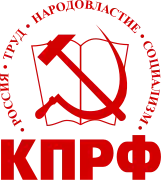
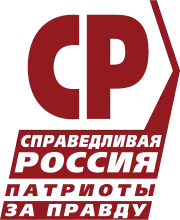
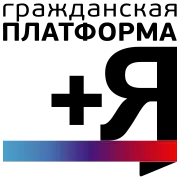
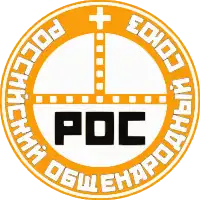
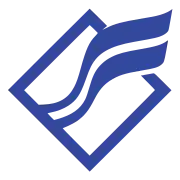
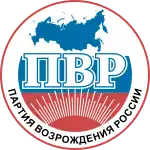
.svg.png.webp)
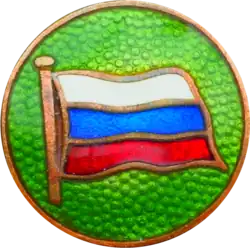
.png.webp)
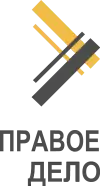
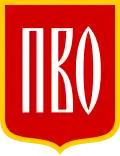

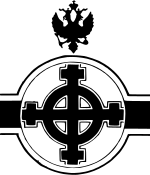
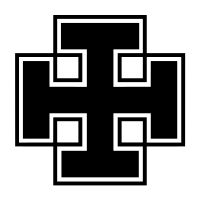
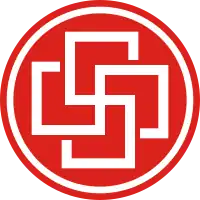
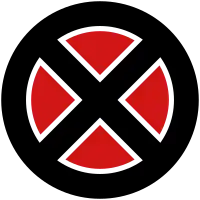
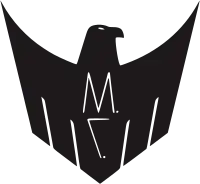
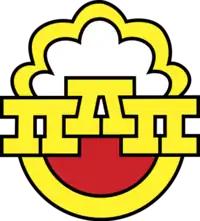
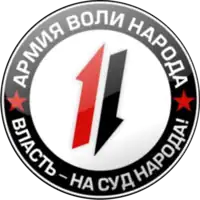
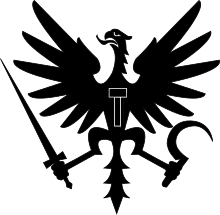
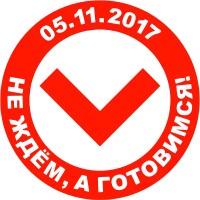
.svg.png.webp)
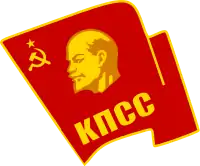



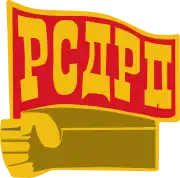
_emblem.svg.png.webp)
